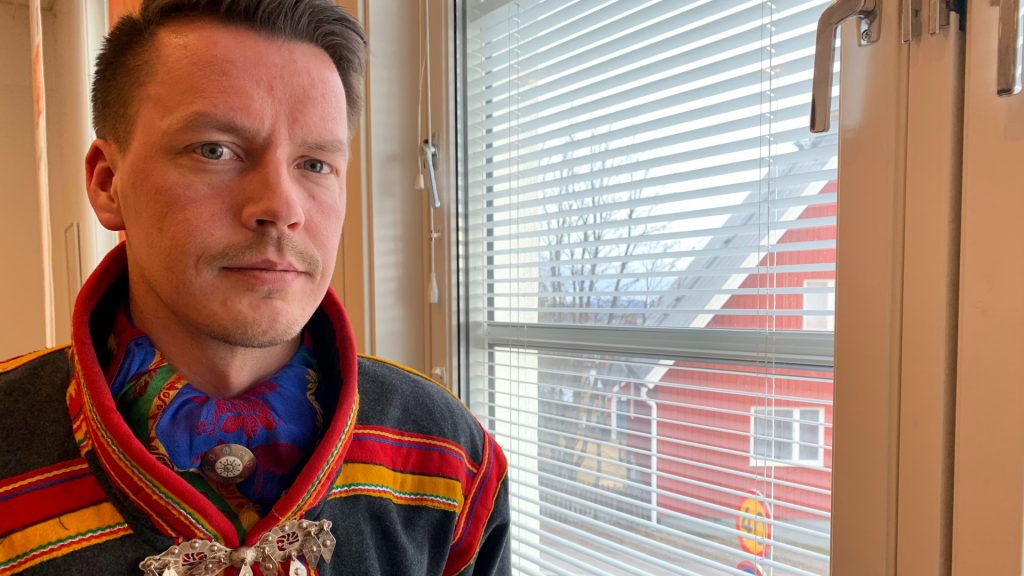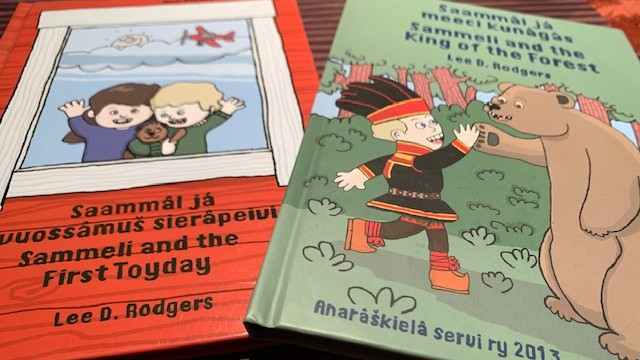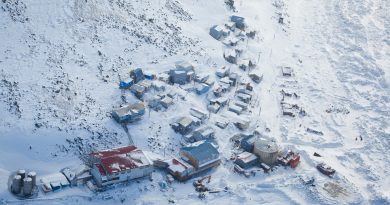Everyone encouraged to boost Sami language visibility in Finland, Norway and Sweden this week

Sami Language Week is underway this week in Finland, Norway and Sweden and everyone is being encouraged to make Sami languages as visible as possible, no matter how small the action may seem.
“Sami Language Week is a collective volunteer work to highlight and increase knowledge of the Sami languages throughout society,” say the organizers on the Sami Language Week website. “Private and public institutions, businesses, organizations and other actors are invited to make Sami languages visible this week. Together, we take on a greater responsibility for the Sami languages being heard, spoken and used in all areas of society.”
Besides numerous planned events in the three countries, organizers are asking everyone to get involved and think about how to make Sami languages more visible in everyday life whether it be translating a menu into Sami, displaying Sami-language books in the library, using the Sami language on social media or saying “I love you” in Sami to someone you care about.
In Sweden, dozens of Sami-language signs have also been made up that anyone can print out and hang in their homes, schools or businesses to make the language more prominent. The signs give a word in Swedish, followed by translations in North Sami, Lule Sami, South Sami and Ume Sami.
“We want our rich Sami languages to be heard, seen and used throughout the week,” said Ingegerd Vannar, supervisor at the Sami Language Center, in a news release. Vannar also encouraged everyone to use the Sami Language Week hashtags.
#giellavahkku2020
#giellavahkko2020
#giällavahkkuo2020
#gïelevåhkoe2020
The program for Sami Language Week is available here.
Languages in danger
The Sami are an Arctic Indigenous people. There is no census just for Sami but their numbers are estimated to be between 100,000 to 150,000. Their traditional homeland stretches across Arctic Finland, Sweden, Norway and Russia’s Kola Peninsula — a region they collectively refer to as Sapmi.
There are eleven Sami languages and numerous dialects spoken across the Sami homeland but according to UNESCO, all are in danger. Their classifications range from “definitely endangered” for North Sami, the most widely spoken Sami language with most estimations averaging around 25,000 speakers; to “critically endangered” for Pite Sami which is now extinct in Norway but is believed to still have around 30 speakers in Sweden.
The first Sami Language Week was held in 2019 to coincide with the International Year of Indigenous Languages. It was considered a success and now the Sami parliaments in Finland, Sweden and Norway are hoping to the make the event an annual occasion.

Pandemic prompts online events
Because of COVID-19, many events have been pushed online. In Sweden, the Sami Language Centre has arranged a special lecture series online featuring a different speaker each night. Monday night featured Pite Sami and Lule Sami language evenings. Tuesday was devoted to the South Sami language and Wednesday to Ume Sami. The North Sami language evening will be on Thursday.
Lars Miguel Utsi, chairman of the Language Committee at the Sami Parliament in Sweden, says the changes forced by the pandemic also have some benefits.
“The digital solution enables everyone to participate in their language, regardless of where they live,” he said in a news release. “But this also gives the opportunity to participate in several language meetings and get to know all the Sami languages even more.
“In this way, it also becomes clear how language can be a unifying force and strengthen the Sami community.”
Sami Language Week runs until October 25.
Write to Eilís Quinn at eilis.quinn(at)cbc.ca
Related stories from around the North:
Canada: Inuit TV coming to Northern Canada from new Inuktut-language broadcaster, CBC News
Norway: Walt Disney Animation Studios to release Saami-language version of “Frozen 2”, Eye on the Arctic
Sweden: Can cross-border cooperation help decolonize Sami-language education, Eye on the Arctic
United States: Inuit leaders applaud UN move to designate International Decade of Indigenous Languages, Eye on the Arctic



